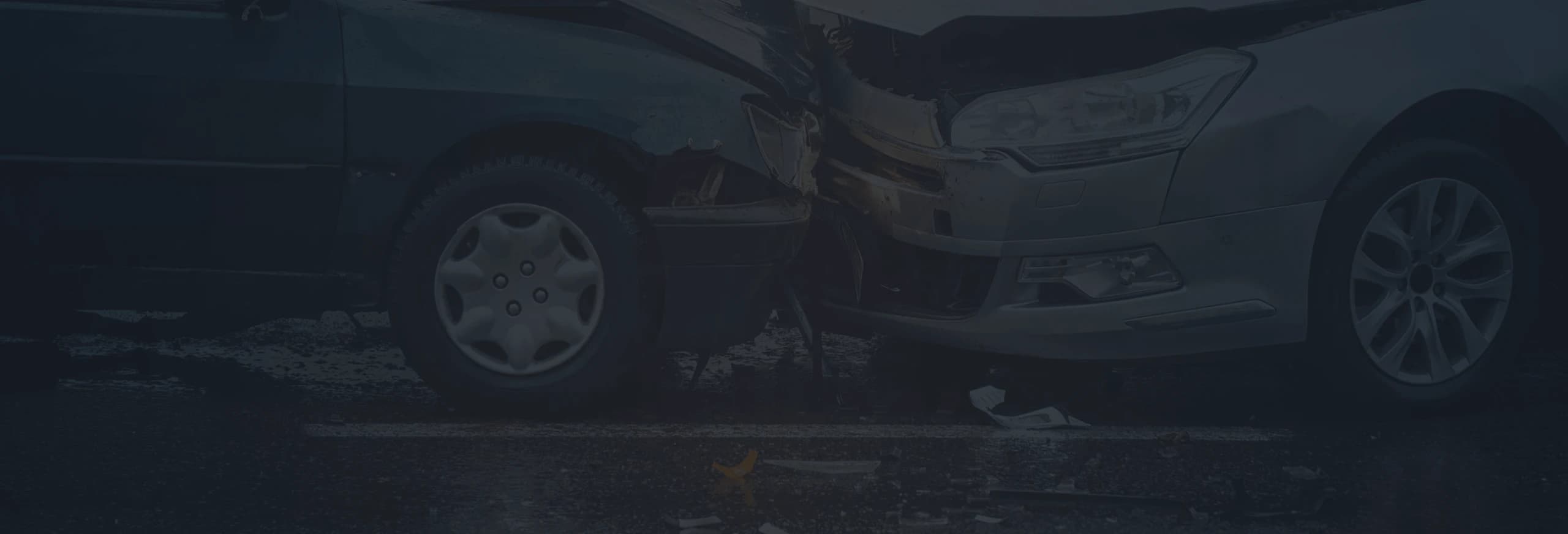
The Difference Between Negligence and Recklessness

Understanding the Distinction
In personal injury law, one of the most critical distinctions to understand is the difference between negligence and recklessness. These two legal concepts often appear similar—both involve harm caused by someone's actions—but the key difference lies in intent and awareness. Negligence occurs when someone fails to exercise reasonable care, resulting in unintended harm. Recklessness, on the other hand, involves a conscious disregard for the safety of others.
Consider two drivers: one accidentally runs a stop sign because they were momentarily distracted, while another speeds through knowing the danger but doing it anyway. The first driver is negligent; the second is reckless. Both can be held legally liable, but the level of fault and potential damages can differ significantly. Understanding this distinction can help victims better evaluate their rights and potential claims.
A knowledgeable personal injury lawyer can help distinguish between these forms of misconduct, as the legal implications—particularly in compensation and liability—depend on how the law categorizes the defendant's behavior.
The Role of Duty of Care
The foundation of every negligence or recklessness case begins with the duty of care—the legal obligation individuals and entities have to act responsibly to avoid causing harm to others. Whether someone is driving, maintaining property, or providing professional services, the law expects a certain standard of caution.
Negligence arises when a person unintentionally breaches this duty by failing to meet that standard. For instance, a store owner who forgets to clean a spill may be negligent if a customer slips and falls. Recklessness goes a step further—it's when someone knows of a potential risk and disregards it entirely, such as a driver racing through a crowded area.
In both cases, the injured party must show that a duty existed, that it was violated, and that the breach led directly to harm. Establishing this connection is essential, as explained in the broader context of understanding the duty of care in personal injury law, where legal responsibility is grounded in the actions a reasonable person should have taken to prevent harm.
Proving Negligence Versus Recklessness
While both negligence and recklessness involve carelessness, the evidence required to prove each can vary. Negligence focuses on what a reasonable person would have done, while recklessness centers on whether the defendant consciously ignored a substantial risk. Proving recklessness often requires showing a pattern of behavior, prior warnings, or clear awareness of danger.
This difference also impacts compensation. Courts may award punitive damages in reckless cases, meant not only to compensate the victim but also to punish the offender and deter similar behavior. In negligence cases, damages typically focus on restoring the victim to their prior condition through medical costs, lost income, and pain and suffering.
Determining which applies in a specific case can be complex. Comparative laws and shared fault principles further complicate this analysis, as the injured party's own behavior can influence the outcome. For instance, if both parties contributed to the accident, the settlement may be reduced according to their respective share of responsibility. This is why understanding how comparative fault works in practice is vital when distinguishing between degrees of carelessness and liability, as explained in how comparative fault can impact your settlement.
How Negligence and Recklessness Affect Compensation
The difference between negligence and recklessness not only affects how fault is determined but also how damages are calculated. In negligence cases, compensation often depends on measurable losses—medical bills, rehabilitation, and lost earnings. In reckless conduct, however, the courts may consider additional damages because of the conscious disregard involved.
Understanding how damages are structured is essential for protecting your interests. Victims must prove not just the extent of the injury, but also the nature of the defendant's behavior. Reckless acts typically justify higher compensation due to the increased severity of misconduct.
An experienced attorney will know how to present evidence that highlights the deliberate disregard for safety, strengthening the claim. Properly classifying the defendant's behavior can mean the difference between an ordinary settlement and a substantially larger award. A clear understanding of these nuances, along with proper case strategy, reflects the importance of having an advocate who knows how to navigate these complexities—one who can truly act as the key to maximizing your case, as described in personal injury lawyer – key to maximizing your case.
Timing and the Statute of Limitations
No matter how clear the difference between negligence and recklessness may seem, it's essential to act quickly when pursuing a claim. Every personal injury case is subject to a statute of limitations, a legal deadline that dictates how long you have to file a lawsuit. If that time passes, even the most compelling evidence may not be enough to recover damages.
This rule applies to both negligent and reckless actions alike. The clock typically starts ticking from the date of the injury, though exceptions exist for cases where the harm wasn't immediately apparent. Because these laws vary by state, victims should consult an attorney immediately to avoid missing the window for legal action. Knowing how to handle this process can make a crucial difference in preserving your right to compensation, as explained in understanding statute of limitations in personal injury case.
The Risk of Delay
Delays not only risk missing the statutory deadline but can also weaken a case. Evidence deteriorates, witnesses forget details, and proving intent becomes increasingly difficult over time. In cases involving reckless conduct—where proving state of mind is already challenging—waiting too long can severely limit your ability to show willful disregard.
Acting promptly protects your legal position and strengthens your claim. Consulting an attorney early ensures that all critical evidence is preserved and that deadlines are properly managed. Taking swift legal action helps prevent procedural barriers that could block your path to justice. The importance of timeliness cannot be overstated, as highlighted through the reminder that victims must act before losing their right to claim—an essential principle of don't miss your chance for justice.
Why Legal Guidance Is Essential
Whether your case involves negligence or recklessness, determining the right legal approach is not always straightforward. Each requires different forms of proof and different arguments in court. Legal professionals evaluate the evidence, reconstruct events, and interpret laws to ensure that justice is served and compensation reflects the true severity of the wrongdoing.
An experienced law firm understands how to differentiate between careless mistakes and willful disregard—and how to use that distinction to strengthen your case. From filing deadlines to negotiations with insurance companies, having a trusted advocate can transform the process. Victims dealing with serious injuries should not have to navigate these distinctions alone, especially when financial and emotional recovery are at stake.
Upholding Responsibility and Justice
At its core, the distinction between negligence and recklessness reflects society's commitment to accountability. Negligence reminds us of the importance of caution, while recklessness underscores the consequences of indifference. Both principles exist to protect individuals and ensure that those harmed by carelessness or disregard receive fair compensation.
Recognizing this difference helps victims understand not just their legal rights but also the broader purpose of personal injury law—to encourage responsibility, prevent harm, and restore balance after tragedy. With timely action and proper representation, those affected can move forward knowing that justice, fairness, and accountability remain within reach.
Blog Posts:

The Role of Expert Witnesses in Injury Litigation
Why Expert Witnesses Matter in Personal Injury Cases In personal injury litigation, facts alone are often not enough. While evidence like medical records, photographs, and witness statements paint part of the picture, juries and insurance companies frequently need context and explanation to understand the full scope of an injury and its impact. This is where expert witnesses play a pivotal role. Expert witnesses are professionals—often doctors, engineers, economists, or accident reconstruction specialists—who provide testimony based on their specialized knowledge. Their objective is not to advocate for one side but to clarify complex issues that require professional interpretation. In many cases, their opinions help bridge the gap between evidence and understanding, making them critical to achieving fair compensation.

How Insurance Companies Evaluate Injury Claims
How the Evaluation Process Really Works When you file a personal injury claim, the insurance company begins a process that is anything but simple. Behind every offer or denial, there's a calculated evaluation designed to protect their bottom line. Insurers use data-driven methods, past claim outcomes, and internal guidelines to assess how much—if anything—they believe your case is worth. The goal of the insurance adjuster is straightforward: to settle your claim for as little as possible while closing the file quickly. They'll review your medical records, accident details, and even statements you've made to determine liability and damages. The more organized and detailed your claim presentation, the harder it is for them to undervalue it.

The Dangers of Handling a Personal Injury Case Without Legal Help
Understanding What's at Stake After an accident, it's natural to want to resolve things quickly. Medical bills begin piling up, your work may be disrupted, and insurance adjusters often seem eager to "help." Many people believe they can handle their personal injury claim on their own—especially if the situation seems straightforward. But personal injury law is complex, and even minor missteps can lead to significant financial loss. Without professional guidance, you may underestimate your claim's value, miss critical deadlines, or make statements that insurers later use against you. The legal process is designed to protect both sides, and insurance companies have experienced professionals working to limit payouts. Without an equally skilled advocate on your side, you're at a clear disadvantage. That's why consulting a personal injury lawyer early in the process is often the difference between fair compensation and a costly mistake.

When Should You Switch to a Different Injury Lawyer?
Knowing When It's Time for a Change Choosing the right attorney after an accident is one of the most important decisions you'll make in your recovery journey. However, not every lawyer-client relationship is a perfect fit. Sometimes, despite your best efforts, you may realize that your current representation isn't meeting your expectations. Whether it's poor communication, lack of progress, or a sense that your case isn't being handled effectively, recognizing when to switch attorneys can make all the difference in the outcome of your claim. Switching to a new personal injury lawyer doesn't mean starting over from scratch—it means taking control of your case and ensuring it receives the attention and effort it deserves. Understanding what to expect from your legal representation can help you identify the warning signs that it might be time for a change.
Get an agent on the line in seconds
Responsive
Legal Assistance
Our personal injury attorneys advocate for the funds necessary to cover bills, secure medical treatment, recoup lost wages, and provide compensation for your pain and suffering.
Are you facing unfair treatment from the insurance company?
Do you know the value of your case?
Is the insurance company asserting that the accident is your responsibility?

We'll get back to you ASAP.
Get Your Free Consultation
You Pay Nothing Unless We Recover Compensation For You
